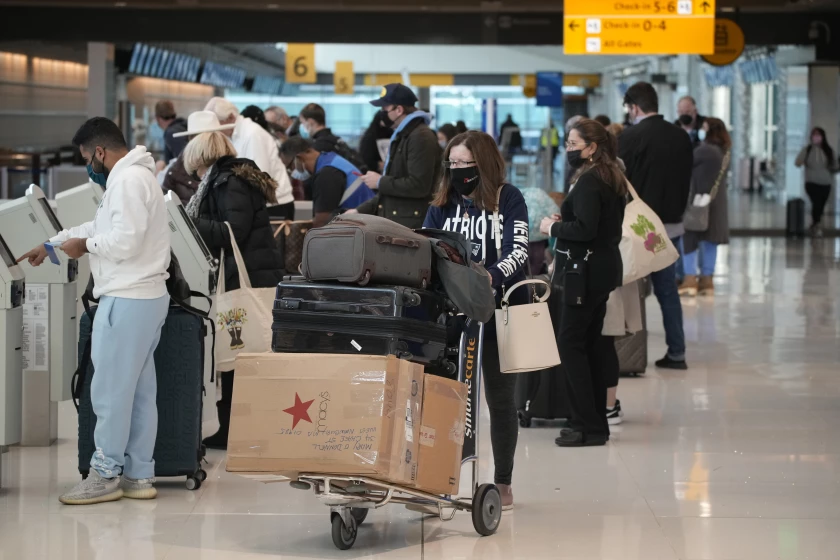The most recent variant of COVID-19 disrupted the end-of-year plans of tens of thousands of travelers but did not cause much damage to sales for the season.
Airlines canceled more flights on Sunday, citing understaffing due to COVID-19-related issues, as hardships for those wishing to travel have dragged on past Christmas with no clear indication of when normalcy could resume. departures and arrivals.
However, buyers forgot about the omicron variant as seasonal sales rose at their highest rate in 17 years, according to a measure of those expenses.
Ómicron is likely to slow the economy’s unexpected strong rebound from last year’s recession caused by the coronavirus by disrupting travel and discouraging some consumers from venturing out. The variant could also fuel already strong inflation by shutting down factories and ports, delaying shipments and causing a rise in prices.
“A full reopening of the US economy will be delayed again,” said Robin Broooks, senior economist at the Institute of International Finance, a group of financial firms.
However, the magnitude of the damage and its duration is unknown. At the moment, the variant is wreaking havoc on travel. More than 1,100 flights arriving, departing or underway within the United States were suspended, according to their tracking website FlightAware.
That figure represents an increase of almost 1,000 over Saturday and about 130 more were canceled by Monday.
Delta, United, JetBlue and American blamed omicron for the staffing shortages that forced the cancellations.
“This was unforeseen,” United spokeswoman Maddie King said of the variance’s effects on staffing.
Globally, airlines canceled more than 2,700 flights by Sunday night and nearly reached the more than 2,800 cancellations the day before, according to FlightAware figures. The site did not explain why the flights were canceled.

